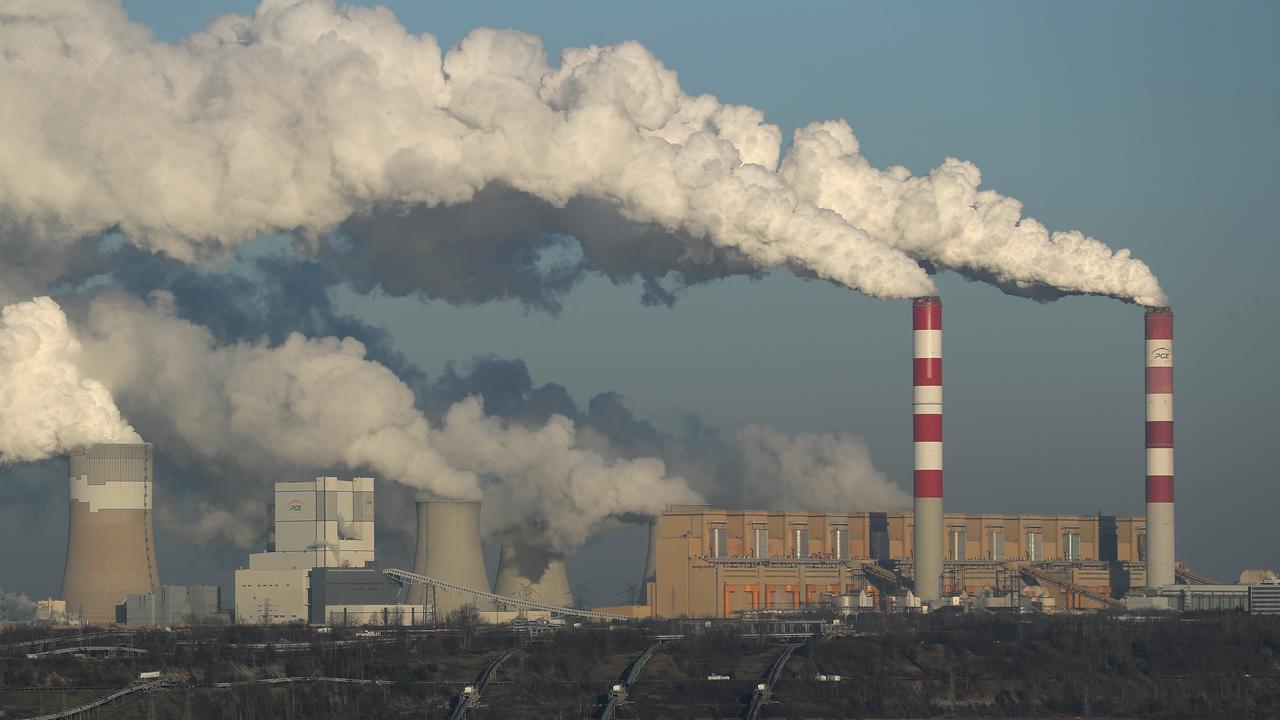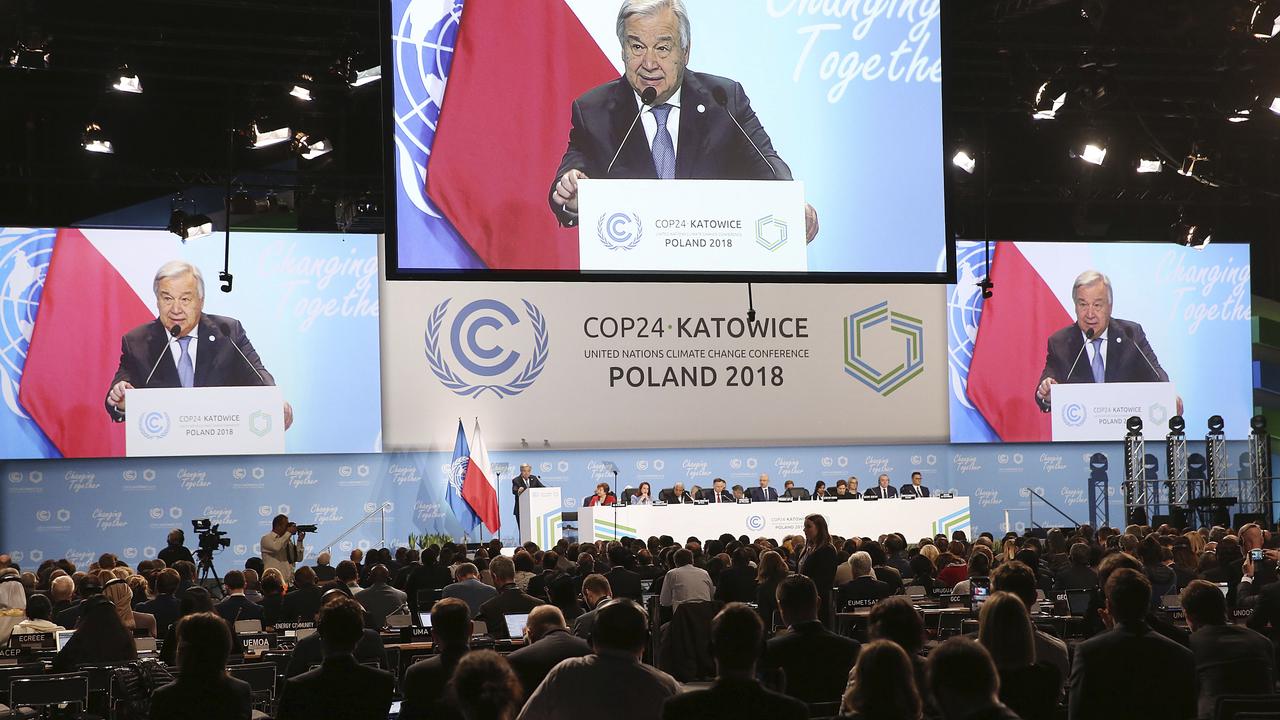Talks face showdown over key science report
Almost 200 countries agree on this crucial issue, but just four countries including Russia and the US could force a showdown over one word.
A diplomatic stand-off over a single word could set the stage for a bigger showdown during the second half of this year’s United Nations climate summit.
Negotiators took time out on Sunday to rest after the first week of talks ended on a sour note the previous night, when the US sided with Russia, Saudi Arabia and Kuwait in blocking endorsement of a landmark study on global warming.
“I think it was a key moment,” Alden Meyer, director of strategy and policy for the Union of Concerned Scientists, said.
“The fact that a group of four countries were trying to diminish the value and importance of a scientific report they themselves, with all other countries, requested three years ago in Paris is pretty remarkable.”
The Intergovernmental Panel on Climate Change’s special report on what would happen if average global temperatures rise by 1.5C and how to ensure they don’t go higher was widely regarded as a wake-up call for policymakers when it was released in October.
As diplomats wrapped up a week of technical talks on Saturday, almost all 200 countries present in Katowice, Poland, had wanted to “welcome” the IPCC report, making it the benchmark for future action.
But the US and three other delegations objected.
“The United States was willing to note the report and express appreciation to the scientists who developed it, but not to welcome it, as that would denote endorsement of the report,” the US State Department said in a statement. “As we have made clear in the IPCC and other bodies, the United States has not endorsed the findings of the report.”
Russia, Saudi Arabia and Kuwait also called for the study to be “noted” but not “welcomed”.
While none of the four oil-exporting countries spelled it out, their objection to the report likely included its suggestion that fossil-fuel use needs to be phased out by 2050. Oil, gas and coal are major sources of carbon dioxide, which traps heat in the atmosphere.
For Australia, whether temperatures rise 2C or 1.5C could mean the difference between completely wiping out the Great Barrier Reef or possibly having some of the corals surviving.
The world has already warmed by 1C and, based on current commitments, it’s on course for 3C of warming above pre-industrial levels by 2100.

Federal Environment Minister Melissa Price met with her state counterparts in Canberra on Friday and asked them to endorse a joint statement for her to take to the conference but they refused because the Government has no plan to tackle the problem.
The Labor governments of Queensland, Victoria, Western Australia, the Northern Territory and the ACT released a joint statement condemning the lack of action.
“The science is frightening, unequivocal and clear — we are running out of time,” the statement said. “Yet the response of successive Liberal prime ministers has been one of delusion and deliberate inaction.”
It comes as thousands of school students protested against the lack of action on climate change and plans for Adani to self-fund its controversial coal mine in Queensland.
Last week former prime minister Malcolm Turnbull urged the Coalition to revive the dumped National Energy Guarantee (NEG), echoing comments from former foreign minister Julie Bishop who said the Coalition should work with Labor on the policy.
He pointed to a “significant percentage of Coalition members who do not believe that climate change is real” when explaining why he didn’t lock in a clean energy target when he had the chance.

The 2015 Paris Agreement set a target of keeping global warming well below 2C, ideally 1.5C by the end of the century.
“1.5C and a 2C worlds are very different in terms of mean climate, extremes, sea level rise, and climate-related risks,” one of the report’s leading contributors, Valerie Masson-Delmotte, said.
The higher threshold increases the likelihood of “climate change hot spots challenging basic water, food, economic security and the risk of irreversible loss of wildlife,” she said.
Observers at the talks said the two Gulf countries’ objection to the IPCC report came as no surprise.
“The Saudis with their sidekicks the Kuwaitis have long been troublemakers in this process,” said Mr Meyer, who has followed international climate negotiations for many years.
Russia’s intentions were unclear, he said, while the US position appeared to be driven by what he called President Donald Trump’s “cavalier attitude toward science in general and climate science in particular”.
“It’s really an embarrassment for the world’s leading scientific superpower to be in this position of having to disbelieve a report that was written by the world’s scientific community including a large number of pre-eminent US scientists,” Mr Meyer said.
Saturday’s floor fight casts doubt on whether countries will be able to reach consensus on important issues by Friday, including the need to step up national targets to curb carbon emissions.
While many countries have sent ministers or even national leaders to the talks, the US and UK are among the countries represented only by bureaucrats.



